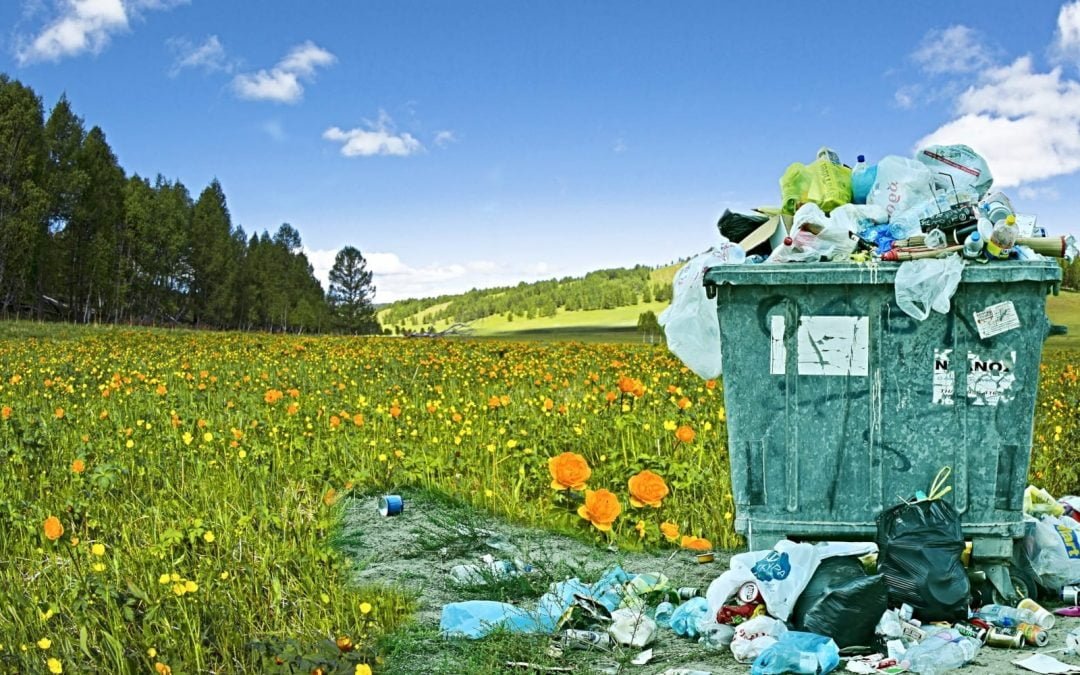This year, I was one of many who participated in a 40-day challenge called “Living Lent.”
We invited people to take up one of six different initiatives that examined how we live in our planet: going meat free, giving up single-use plastics, finding alternative transport, living locally, examining our energy use or buying nothing new.
I gave up single-use plastics, and I have to confess, not altogether successfully. Yet the challenge has been transformative because failing at this has actually taught me the most.
I have realized how incredibly difficult it is to go without single-use plastics. I shopped online for compostable nappy (diaper) bags, and they came wrapped in plastic. I bought cardboard boxes of grocery items, only to discover plastic wrappers inside.
I started to feel the financial pull and time cost of trying to source food in sustainable packaging; that’s before we got to the more confusing ethical questions: Should you buy fairly traded over plastic free? Is driving further and more often to buy groceries heightening my carbon footprint?
And when it comes to the environmental pros and cons of different kinds of nappies (diapers), well, there’s a significant proportion of the internet given over to discussing exactly that.
Seeking to live ecologically in a prayerful way has meant that I haven’t been able to shy away from my own sinfulness.
I discovered I could use a reusable coffee cup, but not ask who grew our coffee and how much they were paid. Or I could refuse a plastic bag while buying fast fashion from a child sweatshop.
I discovered I too am enslaved by this world, by my selfish greed and impatient desire to consume more than I need. I rediscovered the great Lenten lesson: Only Jesus can save me from this sin.
So, this needs to be more than a 40-day single activity, it needs to be a discipline of holiness forever – and being opened up for whole-life transformation is something that requires the help of God.
However, the Living Lent challenge also made me realize that this issue is so much bigger than me and my individual spending power.
It’s about the way we’ve designed our entire society: We expect things to be thrown away; we pack things in plastic for cheap manufacturing purposes.
Even unravelling this is complicated: It could see food price increases and that would affect the poorest first. These systems are so broken they need to be completely deconstructed and started again.
Our world needs to be reconciled back to its Creator. We need grace. We need the hope that nothing is impossible with God.
Failing at this Lent challenge brought me to the end of my own power. It’s made me realize I can’t do it on my own; it’s made me start relying on God.
And so, this is why I think that Christians need to lead the way on tackling the climate crisis in our world because it is ultimately about humanity’s relationship with God.
This is God’s creation, we are God’s creation, and that is where we need to start when tackling this world emergency.
As Christians, we know our entire lives need to be lived in discipleship to Christ.
This includes bearing the burdens of our brothers and sisters across the planet who are already struggling with the present-day impact of climate change and who are enslaved by the economic structures of the world.
This is, therefore, a missional imperative for us as Christians. We could leave climate change conversations to climate change charities and nongovernmental organizations. However, However, this is a significant moment in world history, and the church can offer something more.
1. We can offer local community.
The accountability of others on the same road who are seeking to live disciplined lives of love, which put others first even when we don’t know them and can’t see them. We can encourage each other when the road is narrow and difficult to tread.
2. We can offer a worldwide community.
We can tell the stories of climate change not only in abstract numbers or remote sounding data but informed by the personal stories of people in different lands who are nonetheless our brothers and sisters.
And if the whole church stood up to the principalities and powers of this world to make a stand on climate change, imagine what we could achieve.
3. We can offer healing.
The abuse we have committed to this planet is part of our human fallenness, but we know that being restored to God and to one another changes everything.
We can struggle with how to evangelize in the Western world, but this is an issue on which young people are passionate.
If we lead the way on this, people will ask us questions, people will want to know why we live counterculturally, people will want us to give an account of the hope that is within us.
I’ve lost count of the number of times this Lent I’ve been asked to share my faith.
4. We can offer hope.
The climate crisis is not a foregone conclusion, but the need for us to change is now critical.
We know that the earth is the Lord’s and everything in it. We can be people who declare that nothing is impossible with God – and then live out the miracle.
Editor’s note: This article is part of a series for Earth Day 2019 (April 22). The previous articles in the series are:
Your Responsibility to Love the Earth as Your Neighbor by Jeff Lee
The Only Hope Left to Thwart Climate-Change Disaster by Rick Burnette
5 Practical Measures to Turn Around Our Declining Environment by Sam Harrell
Beth Allison-Glenny is the Public Issues Enabler in the Baptist Union of Great Britain’s Faith and Society Team. She previously pastored John Bunyan Baptist Church in Oxford, United Kingdom.

